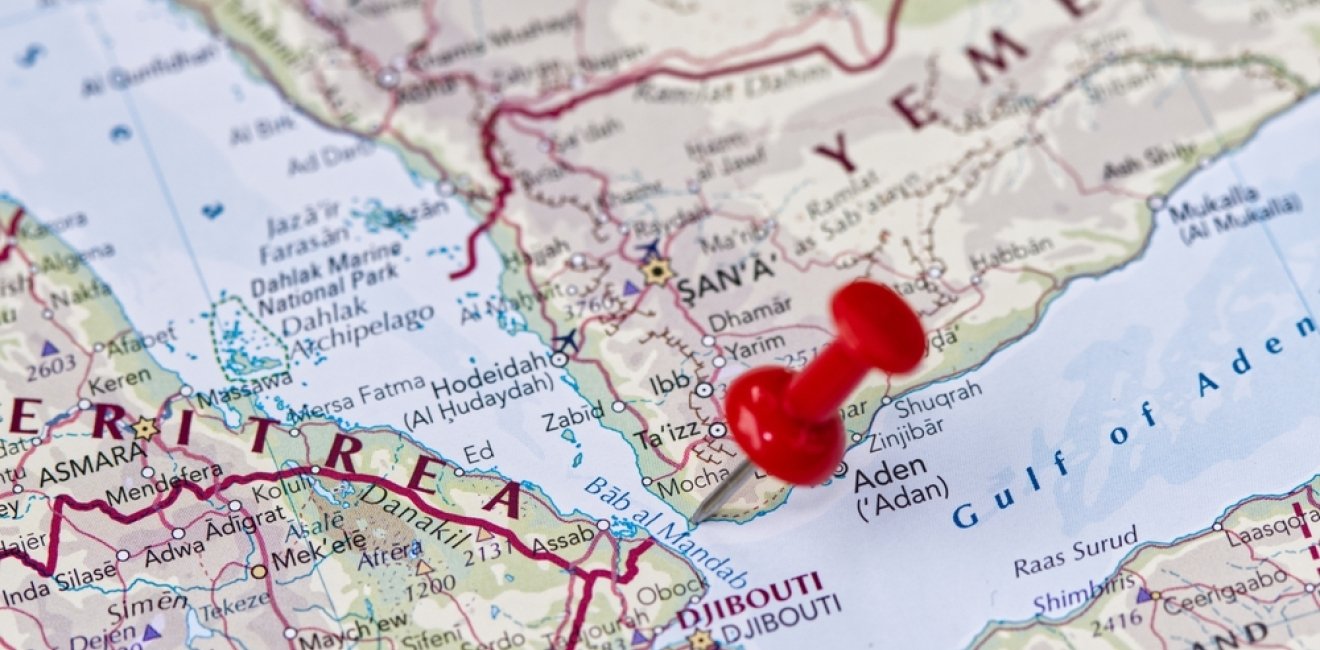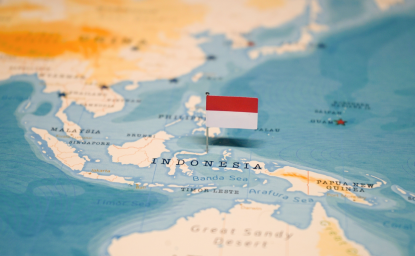Once again, the United States finds itself on the cusp of involvement in another of the Middle East’s unending conflicts, this time in Yemen in the name of protecting the free flow of navigation through two vital international waterways.
In a show of support for the Palestinian side in the ongoing Israeli-Hamas War, the Iranian-backed Houthi government in Yemen has announced its intention to block all ships passing through the Red Sea via the Bab el-Mandeb Strait on their way to Israel. The Houthis have already fired scores of drones and missiles toward Israel, all of which have been shot down so far by US and French warships patrolling the Red Sea.
The Houthis have successfully seized two Israel-linked commercial vessels, however, one of which they now hold captive with its non-Israeli crew in the Yemeni Red Sea port of Hodeida. After two more commercial ships were hit by Houthi missile or drone fire on December 15, two shipping companies announced they were suspending passage through the strait until further notice. The Houthis have also shot down one American Reaper intelligence drone flying over international Red Sea waters.
Between allied interests
So far, the United States has not retaliated by attacking any Houthi sites onshore to avoid widening the Israel-Hamas war in Gaza into a regional conflict. The current US National Security Strategy states emphatically, however, that the United States “will not allow foreign or regional powers to jeopardize freedom of navigation” through the Bab el-Mandeb Strait. About nine percent of all seaborne traded oil passes through the strait at the southern end of the Red Sea on its way to and from the Suez Canal. The Pentagon has even established a special multinational Red Sea naval taskforce to protect the strait from just the kind of Houthi attacks now taking place.
In weighing its response, the Biden administration finds itself caught between conflicting pressures from Israel and Saudi Arabia, its two most important Middle East partners.
In weighing its response, the Biden administration finds itself caught between conflicting pressures from Israel and Saudi Arabia, its two most important Middle East partners. Israeli Prime Minister Benjamin Netanyahu has told President Biden that if the United States does not retaliate militarily against the Houthis, Israel will. Saudi Arabia, on the other hand, is urging Biden to show restraint, fearing a US attack will undermine its own diplomatic efforts to extricate itself from a civil war underway in Yemen since 2014 but currently enjoying a nearly two-year-long lull in the fighting.
The latest Houthi threat on December 9 came just one day after the United States found itself the only member of the 15-nation UN Security Council to veto a resolution calling for an immediate humanitarian ceasefire. A Houthi spokesman warned that “if Gaza does not receive the food and medicines it needs, all ships in the Red Sea bound for Israeli ports, regardless of their nationality, will become a target of our armed forces.”
Tense talks in Yemen
How the Houthis would determine which ships passing through the Red Sea are headed for Israel as opposed to the Suez Canal remains unclear. But they claim to have convinced one commercial vessel already to change course since issuing their warning.
What impact US retaliatory strikes would actually have on the nine-year-long Yemeni civil war remains unclear.
What impact US retaliatory strikes would actually have on the nine-year-long Yemeni civil war remains unclear. The Saudis have been supporting tribes and factions opposing the Houthis who control the capital, Sanaa, and most of the northern half of the country. The opposition is represented by a largely defunct internationally recognized government, whose control has steadily shrunk to just parts of southern Yemen. This reality has led the Saudis to open peace talks directly with the Houthis. They have taken place both in Riyadh and Sanaa, and pointedly left out their own allies in the civil war.
The Saudi fear is that US attacks inside Yemen could not only upset peace talks but trigger a renewal of the civil war marked also by hundreds of Houthi drone and missile attacks on Saudi oil facilities, military bases and even major cities.
There is an element of irony should the Biden administration now decide to take on the Houthis. Under pressure from Congress, it put enormous pressure on Saudi Arabia to declare a cease-fire in the war and sue for peace. Biden even lifted the US designation of the Houthis as a “terrorist organization” to facilitate Saudi-Houthi peace talks.
The threat to free navigation
The growing Houthi threat to shipping is a challenge the Biden administration can hardly ignore given the US commitment to keeping the Bab el-Mandeb Strait open and safe for international navigation. Also, the United States already set a precedent for retaliation in October 2016. A US guided-missile destroyer, the USS Mason, fired Tomahawk missiles to destroy three onshore radar sites after the Houthis fired two missiles at it. It was not hit, and the Houthis denied it had even happened.
However, if the Houthis persist in their attacks on ships headed for Israel, the US will have little choice but to respond more forcefully.
By contrast, on November 8 the Houthis hit and destroyed an American MQ 9 Reaper spy drone flying in international airspace over the Red Sea. This time, the Houthis took full credit for it. They even proudly released video of the shootdown.
At least initially, the wisest course for the Biden administration would be to repeat the US measured response to the Houthi attack on the USS Mason calculated primarily as a warning. However, if the Houthis persist in their attacks on ships headed for Israel, the US will have little choice but to respond more forcefully. This may indeed come at the risk of upsetting Saudi-Houthi peace talks and reigniting the Yemeni civil war. But both the principle and practice of defending navigation in strategic international waterways is at immediate stake now.
The views expressed in these articles are those of the author and do not reflect an official position of the Wilson Center.






